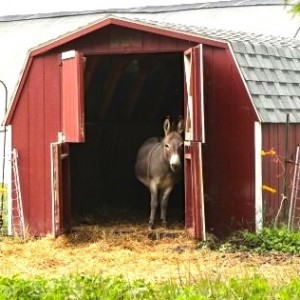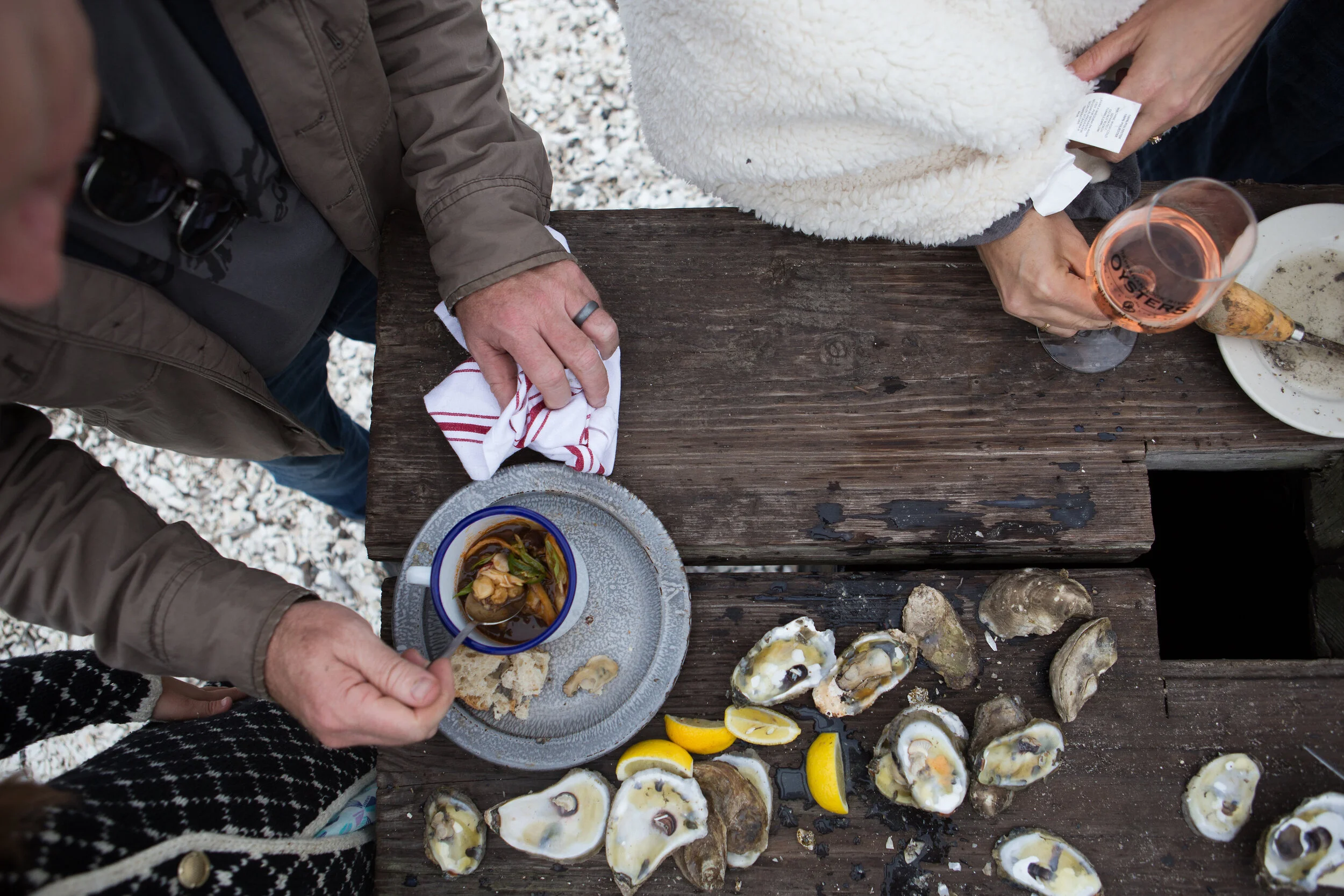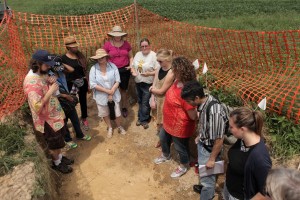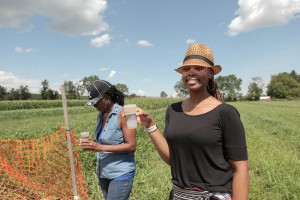Food and Dirt: A Day of Learning at the Rodale Institute
/ By Melissa Jones, special to Edible DC
By Melissa Jones, special to Edible DC
A group of eleven gardeners, farmers, foodies, and environmental advocates from the DMV took an August road trip to Pennsylvania to visit a one-of-a-kind research institute that has been on the forefront of organic farming since 1947. “Healthy Soil = Healthy Food = Healthy People” has been the Rodale Institute's motto since 1947. I'm the founder of Good Soil Events, a developing social enterprise that celebrates sustainable agriculture, advocates healthy soil and raises awareness through food-focused experiences. Considering that the United Nations Food & Agriculture Organization declared 2015 the International Year of the Soils, this was an important trip for me to host and make available to others.
We kicked off our journey with a farm-fresh meal prepared by The Market Café at the Rodale Farm with a spread of Mediterranean sandwiches, fresh gazpacho, cucumber and tomato salad, kale salad, and a refreshing fruit salad. The attendees shared their food stories at the table – because food is an event, a connector and everyone has a food story to share.
Dr. Kristine Nichols, chief scientist at the Rodale Institute farm, greeted us during lunch and led the tour. Dr. Nichols is a Midwesterner who grew up in the heart of farm country. An expert on soil, she holds a PhD in Soil Science from the University of Maryland. She was the perfect tour guide for our trip.
Our first stop was the soil pit at Rodale’s Farming System Trial (FST), America’s longest running, side-by-side comparison of organic and chemical agriculture. As we stood in the pit – Dr. Nichols pointed out the different layers or horizons of soil, so we could see the differences in soil that has been managed organically and conventionally. The organic and conventional crops are grown side-by-side, so we saw firsthand the differences between the two. We also had the opportunity to run soil tests.
The tour was an ongoing education about soil as we moved throughout the farm. We saw their impressive composting site, an on-farm experiment designed to combat stink bugs and more. Time and time again we were reminded that Mother Nature has her own answers to many of the challenges we face.
 Other experimental projects are their Tree as a Crop program and The Honeybee Conservancy. Rodale was designed, operates and evolves as an institute to meet the needs of modern day farmers, so the scientists there utilize and try to maximize output on all their farmland for growing food or other crops that could be used by farmers to generate income to continue to learn more. Rodale studies the entire food ecosystem which includes animals. From raising organic and heritage breed hogs to roosters and chickens, Rodale farm even had two rescue donkeys – Rodale is an environmental sanctuary for all things in a farm's ecosystem.
Other experimental projects are their Tree as a Crop program and The Honeybee Conservancy. Rodale was designed, operates and evolves as an institute to meet the needs of modern day farmers, so the scientists there utilize and try to maximize output on all their farmland for growing food or other crops that could be used by farmers to generate income to continue to learn more. Rodale studies the entire food ecosystem which includes animals. From raising organic and heritage breed hogs to roosters and chickens, Rodale farm even had two rescue donkeys – Rodale is an environmental sanctuary for all things in a farm's ecosystem.
Our trip ended with a visit to Rodale’s farm shop that many of us visited. We walked out with fresh preserves, maple syrup, soil, educational books, t-shirts and more. On the bus ride back to DC, everyone had a chance to reflect on what an amazing day they’d had. They also dug into the road-trip goody bags we’d put together filled with snacks and other travel-friendly items from local D.C. artisans including Baklava Couture, Goldilocks Goodies, KateBakes, Karmalades, FruitCycle, and Watusee Foods.
The Rodale experience was truly remarkable – an opportunity to connect the dots of their great work with something we all love - food.





